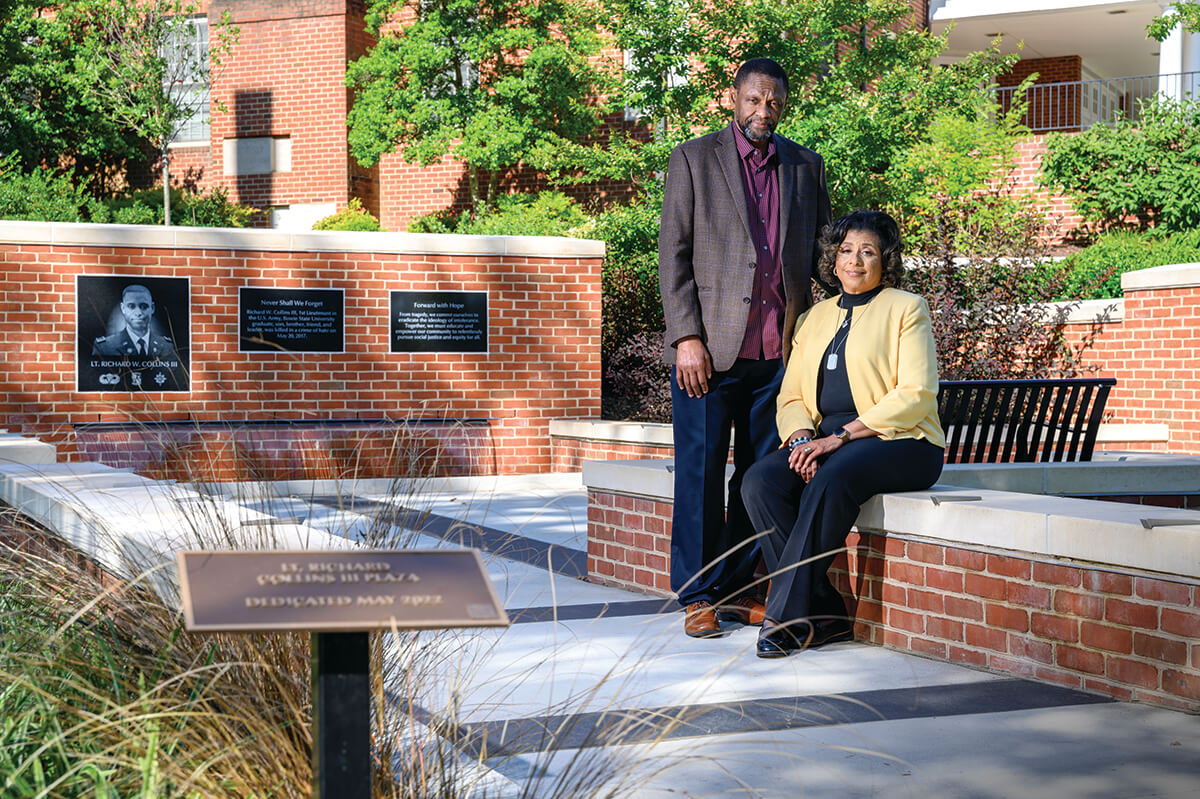GameChangers
How Dawn and Richard Collins Transformed Their Son’s Legacy Into Nonprofit Advocacy
In the wake of Second Lieutenant Richard Collins III tragic death in 2017, the couple invested in educating and empowering promising young Americans.

Second Lieutenant Richard Collins III had plenty of potential. He was a student athlete, ROTC leader, beloved by his family, and a soon-to-be Bowie State University graduate.
On May 20, 2017, two days after his ROTC commissioning in the U.S. Army, that potential was cut short when Collins was fatally stabbed at the University of Maryland, College Park while waiting for an Uber with friends. He was the only Black person in the group. The perpetrator, now serving a life sentence for first- degree murder, was affiliated with a white supremacist Facebook group.
While Dawn and Richard “Rick” Collins grieved, they pondered the best way to honor their son’s life. Bowie State had already funded a scholarship in the younger Collins’ name, and the Maryland General Assembly, spearheaded by State Senator Thomas V. “Mike” Miller Jr., created the $1 million Richard W. Collins III Leadership with Honor Scholarship program to promote diversity in ROTC programs at the state’s historically Black colleges and universities (HBCUs). But the Collinses wanted to do more.
“Something my son said to me right before he was commissioned is that ‘the world is going to know my name,’” Dawn Collins recalls. “That sticks in my spirit. We’re doing things to elevate who he was and what it is that he stood for.”
Shortly after the state funded the scholarship in 2018, the Collinses established the 2nd Lieutenant Richard Collins III Foundation. Its mission? To invest in the education and empowerment of promising young Americans who’ve proven themselves to be outstanding citizens and are committed to working toward a hate-free, more just society for all.
The foundation funds scholarships and mentoring for students and ROTC cadets at the University of Maryland and Maryland’s four HBCUs and recently launched a program with Outward Bound to bring together ROTC cadets from HBCUs and predominately white universities for team-building wilderness retreats on the Adirondack Trail.
“Individuals have said how life-changing that is, and that gives me hope,” Collins says.
Working for social justice drives the Collinses, as parents and as philanthropists. At the beginning of the trial in 2019, the judge threw out the hate crime designation of their son’s murder, as Maryland’s hate crime statutes require the murder to be solely a result of racial hatred. Although there was ample evidence to indicate their son was killed because he was Black, it was not absolute.
In early March 2020, they were at the Statehouse when the 2nd Lieutenant Richard Collins III Law passed, amending Maryland’s hate crime law to state that an act of violence motivated by hate “either in whole or in substantial part” is considered a hate crime.
“There have been state prosecutors who have been able to use the law,” Collins says, adding, “We would love to see a national hate crime law because I think it’s needed.”
The foundation’s more recent Social Justice Alliance is a groundbreaking partnership between the University of Maryland and Bowie State that centers on difficult conversations about racial differences among students to forge common ground and solutions.
Last September, the Collinses were selected by President Joe Biden to participate in the United We Stand Summit at the White House, where they spoke about the loss of their son.
“The pain is always there, but we just have to keep fighting. Because he did matter.”